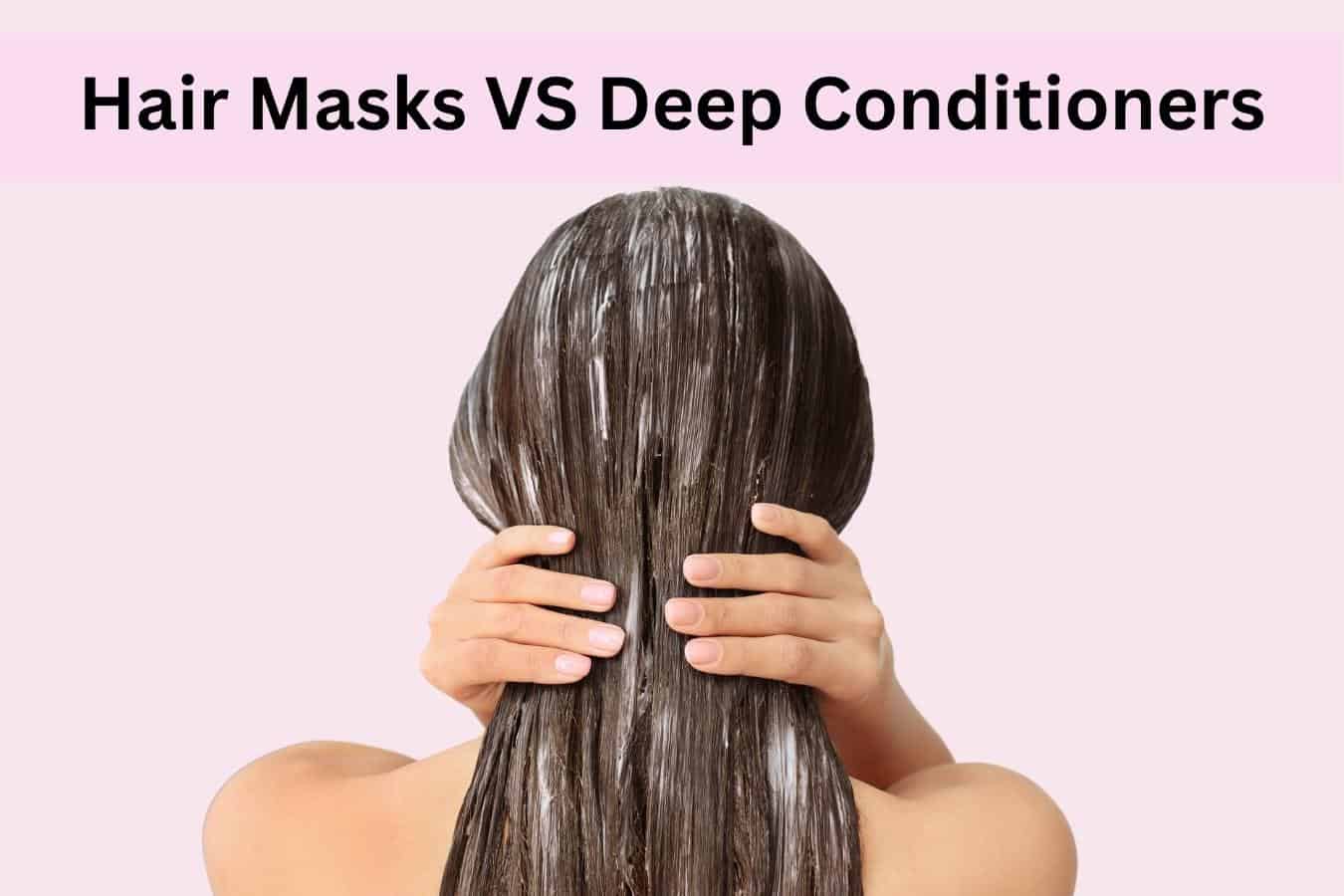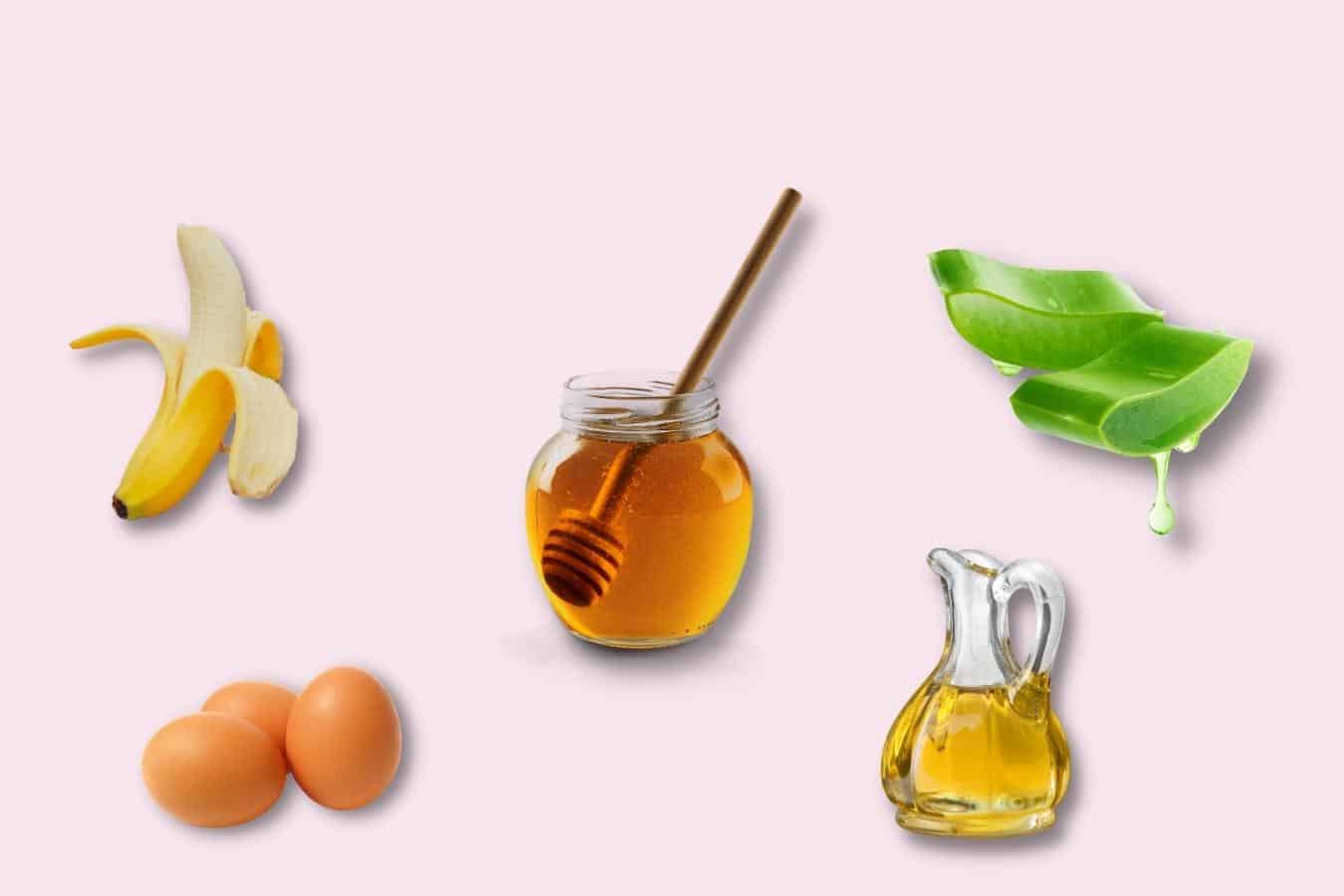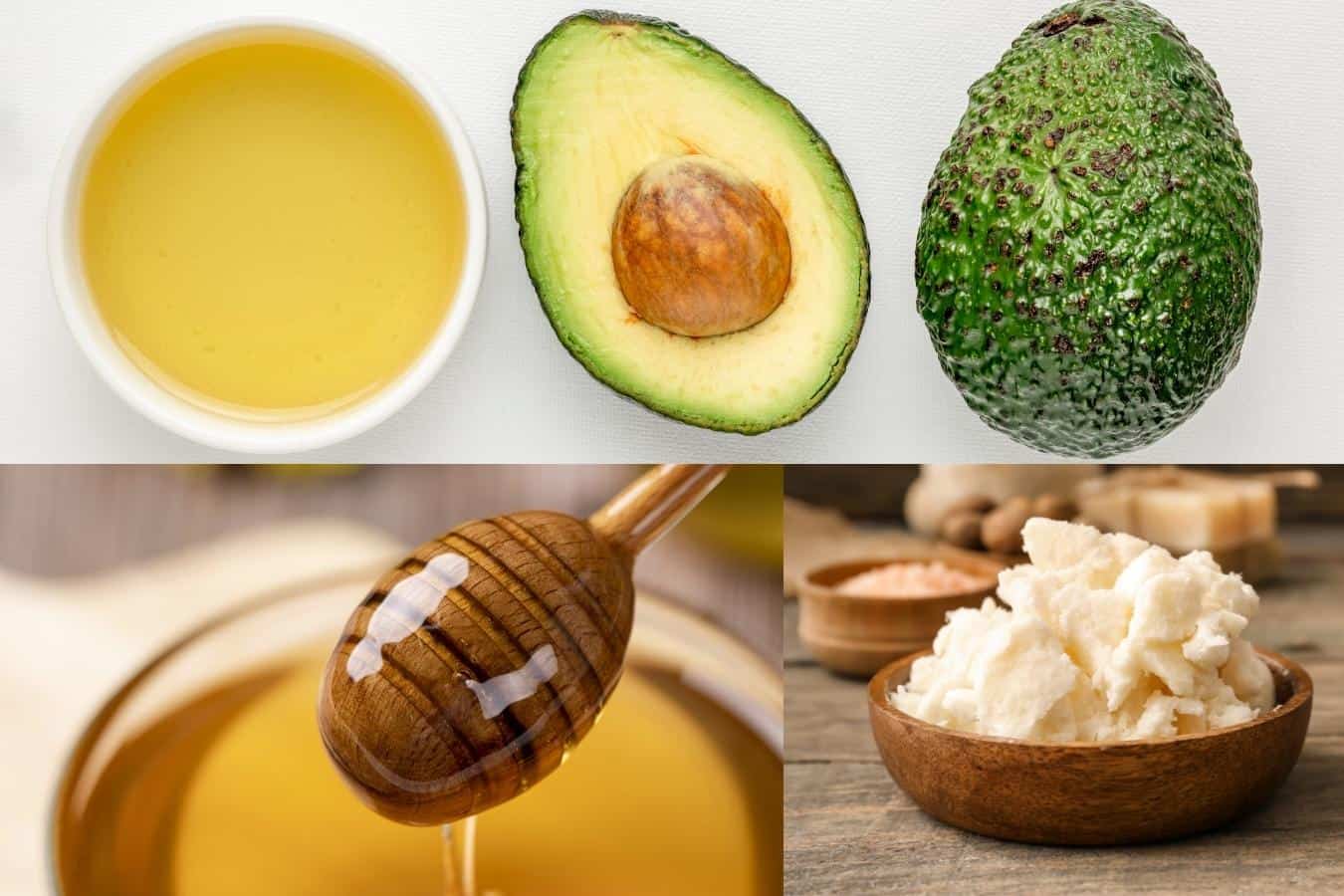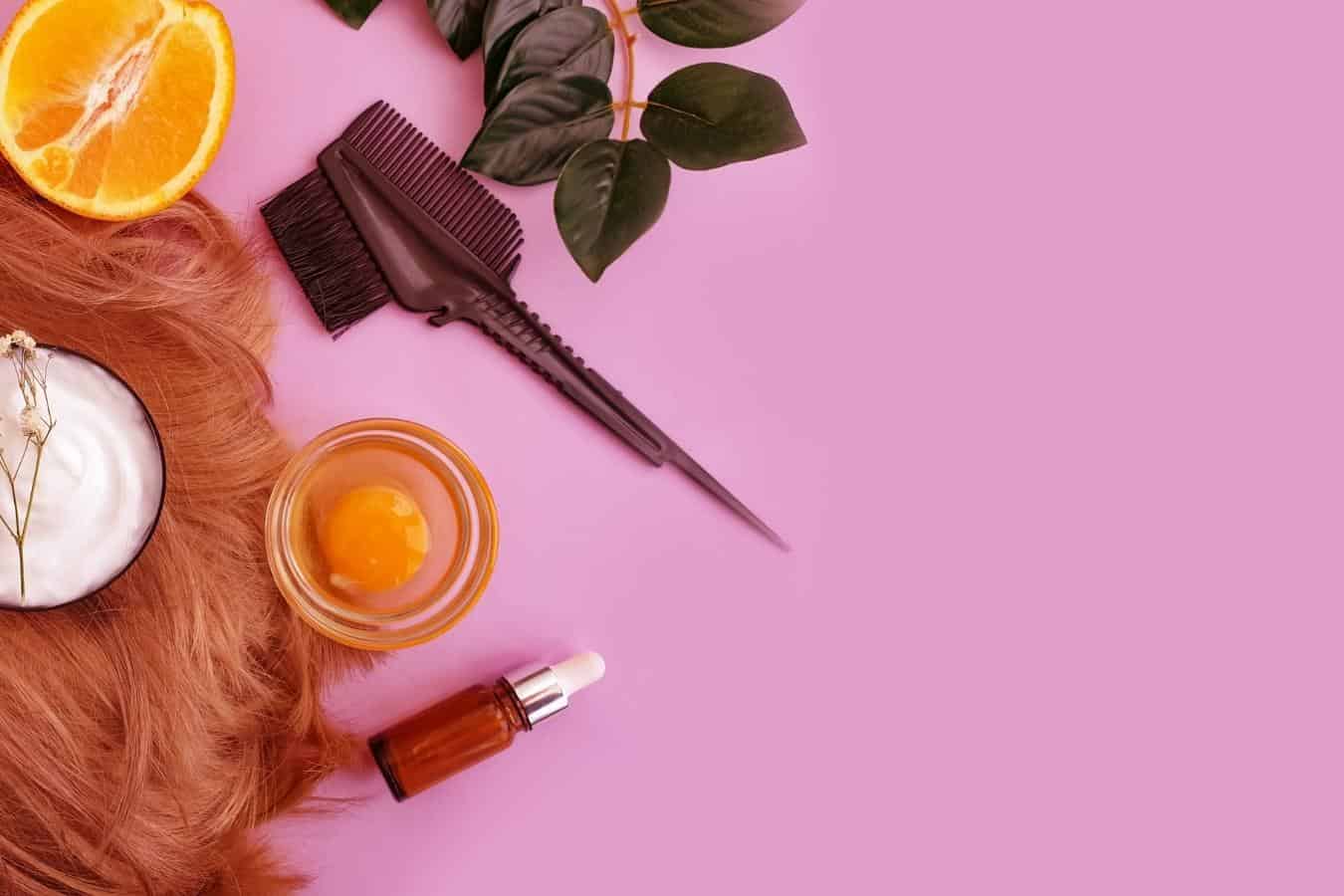Hair masks and deep conditioners both are used to maintain your hair, and are two of the most confusing products to differentiate between because they function so similarly. In this article, I’ll explain just what the difference is between a hair mask and a deep conditioner.

Hair Mask Vs Deep Conditioner – The Main Difference
While a hair mask is used to repair and restore your damaged hair back to health, a deep conditioner is only used to make your natural hair feel softer and smoother. Think of a hair mask as a full treatment, and a deep conditioner as just a painkiller.
A deep conditioner is used after a shower to temporarily put your hair in an optimal condition without knots or frizz.
Whereas a hair mask can be used before or after showering to strengthen the hair, hydrate it using oils and lipids, and remove any sustaining damages for the long term.
In this article, we’ll explore all the ways to differentiate hair masks and deep conditioners from one another as well as discuss the distinctive features of the two hair products.
What Is A Hair Mask And How Does It Work?
A hair mask works just like a face mask but for your hair.
Not only does it help repair damages, but it also moisturizes and hydrates your hair.
Hair masks are used to boost the health of your hair and nurture them back to prime condition.
Hair masks can either be store-bought or homemade, from ingredients like aloe vera, eggs, bananas, and honey.
Hair masks can also be applied before or after the shower.
They are usually left on your hair for 20 minutes or more so that the ingredients take their effect. After this amount of time, the mask can be rinsed off.
How Does A Deep Conditioner Work?
A deep conditioner is applied after a shower to make the hair softer and to smooth out any frizz or tangles still present in the hair.
Although the effects of a deep conditioner are usually short lasting, it gets the job done by making your hair appear shinier and healthier after a shower.
Deep conditioners can be bought at the store or made at home. Usually applied to the lower part of the ends, a hair conditioner is left on for a short amount of time before it’s rinsed out.
Why Do People Confuse The Two?
There are a lot of similarities between the two, hence the reason why most people use them interchangeably.
Firstly, when applied, both hair products are left on for longer periods of time in the hair (20-30 minutes) after which they can be rinsed out.
This is to make sure that your hair absorbs all the nutrients that the hair products are providing.
Both hair products can be store-bought or homemade, and their method of application is also very similar.
Both products strengthen your hair and nurture it to give it a smoother and softer feel while also nourishing and enriching it with nutrients that will improve your hair’s health.
While both products may look and feel the same in terms of usage and effect, they’re actually very different in the way they nourish and impact your hair according to the ingredients they’re made of.
The next section explores all the differences between the two hair products and tells you why not to use them interchangeably.
How To Differentiate Between A Hair Mask And A Deep Conditioner?
Common Ingredients In Hair Masks

Some of the most popular ingredients in a store-bought or home-made mask are:
Bananas – they help reduce frizz and contain silica, which helps restore, making your hair shinier and softer. For dry hair, bananas can help reduce dryness and dandruff.
Aloe Vera – helps reduce that irritability and inflammation with its healing properties. Also helps moisturize and strengthen your dry hair to sustain and counter damage.
Honey – repairs hair-related damages and retain your hair’s moisture, inducing cell growth, and strengthening hair follicles, preventing breakage and frizz.
Eggs – contain hair growth-promoting nutrients such as biotin, folate, vitamins A and E, and protein, which help strengthen your hair.
Avocado oil, coconut oil, and olive oil – minerals in avocado oil help sustain hair damage, coconut oil deeply conditions your hair, reduces dryness, scalp inflammation, and frizz, promotes blood circulation, and olive oil moisturizes your hair.
Common Ingredients In Deep Conditioners

Honey – helps return moisture to the hair and reduces frizz.
Shea butter – contains vitamins A and E, fatty acids which add shine to the hair and make them smoother.
Avocado oil, and coconut oil – if used on the surface level, these oils help prevent split ends, and brittle hair ends, and smoothen out your hair, preventing any frizz.
s
Dimethicone, dimethiconol – soften up your hair, make them easier to untangle while brushing, and help protect your hair from environmental damage.
From this, we can discern that, while some of the ingredients may be similar, hair masks have ingredients mainly focused on repairing and reducing the damage caused to hair while deep conditioners have ingredients focused on the physical appearance, for example, shine, softness, and smoothness of the hair.
How To Use A Hair Mask
1. Find out the nature of your hair mask, if it’s oil-based, make sure your hair is dry before applying it, if not, apply it over damp hair.
2. Divide your hair into sections.
3. Use gloves or brushes to apply the mask.
4. Apply the mask to the ends of your hair and then to the scalp.
5. Use a brush or a comb to even the product out.
6. Once the mask is spread over the entirety of your hair, cover it with a shower cap, and a towel to provide it warmth for your hair to absorb the nutrients.
7. The nutrients need time to be absorbed, so keep the mask on for about 20-30 minutes.
8. Rinse your hair with normal-temperature water and shampoo it or towel dry it.
9. Repeat once every two weeks to avoid product buildup in the hair.
How To Use A Deep Conditioner
1. Shampoo your hair first. If your hair isn’t dirty, run some water through it.
2. Apply the conditioner using both of your hands, smoothing them out over the hair strands. Alternatively, use a brush if it comes with the packaging.
3. If you have curly hair apply the conditioner all the way to the roots, if oilier then apply it from the middle of your hair length to the end.
4. Comb out the product to even it out, similar to how hair masks are applied.
5. Cover your hair with a plastic cap for about 20 minutes. Since a deep conditioner works instantly, you can also keep it on for only 5 minutes.
6. Rinse the hair using cool water.
7. Repeat once a week.
Hair masks can be applied before or after the showers, whereas deep conditioners can only be applied after.
The duration that the two products have to stay on the hair also differs; a hair mask stays on for longer while a deep conditioner has to only be left in for some minutes.
Hair masks can be applied to the scalp, whereas deep conditioners cannot.
Furthermore, because of the temporary impact of deep conditioners, they have to be applied at least once a week whereas hair masks can be applied once every two weeks.
Results And Benefits

A deep conditioner works only on the outward appearance of the hair, making it stand out, while a hair mask works to repair the damages not seen through the naked eye.
Thus so, a deep conditioner works for the short term, while a hair mask has long-term benefits.
Deep conditioners also focus on the tangles and knots in your hair while hair masks focus on healing damages.
Cost And Expenses
Hair masks naturally cost more than deep conditioners because of their heavy-duty ingredients and long-term impacts.
Hair masks are also less common than deep conditioners making them a rarer commodity, and thus costlier.
Frequently asked questions
Unfortunately, they cannot. Because of the difference in their ingredients and impact, your hair would be damaged if you used a conditioner as a hair mask and vice versa.
Both have their own advantages, while a hair mask helps strengthen your hair and promotes healthy hair growth, a deep conditioner makes your hair shinier and softer.
Absolutely, although we wouldn’t recommend you do it too often because it builds up more product in your hair which can lead to more hair damage.
Disclaimer: This site is not intended to provide professional or medical advice. All of the content on LovedByCurls.com is for informational purposes only. All advice should be followed at your own discretion. Ingredients may change at any time so always check the product label before using. Check our full disclaimer policy here.
